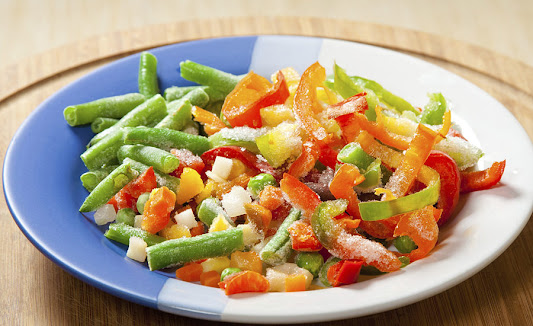((Frozen fruits and vegetables are))
staples in many households, being convenient, long-lasting and available year-round. A common concern is whether these frozen options retain their nutritional value, particularly vitamins. This article explores the vitamin content in frozen fruits and vegetables and compares it to their fresh counterparts. ### The Freezing Process Freezing is one of the most in effective ways to preserve food. In this process, fruits and vegetables are harvested at their ripest, when they are most nutrient-rich. These products are then blanched (slightly boiled) to inactivate enzymes that can cause spoilage and cause loss of color, flavor and nutrients. After blanching, the product is quickly frozen to lock in its nutritional value. ### Vitamin Retention in Frozen Fruits and Vegetables #### Heat-Sensitive Vitamins Some vitamins, such as vitamin C and some of the B vitamins (thiamine, riboflavin and folic acid), are heat-sensitive and may be destroyed during the blanching process. Studies have shown that blanching can cause a reduction in these vitamins, ranging from 10% to 80%, depending on the vegetable and blanching conditions. However, the rapid freezing that follows helps preserve the remaining vitamin content.
((# Stable Vitamins During Freezing))
Other vitamins, such as vitamin A, vitamin E and vitamin K, are more stable and less likely to degrade during the freezing process. These fat-soluble vitamins retain their levels better in frozen products than water-soluble vitamins. Minerals such as potassium, magnesium and iron are also largely unaffected by freezing and remain in amounts comparable to fresh products. ### Comparative Study: Frozen vs. Fresh Research comparing the nutrient content of fresh and frozen fruits and vegetables has produced interesting results. A study published in the *Journal of Food Composition and Analysis* found that, on average, the nutrient content of frozen produce is equal to and in some cases even superior to that of fresh produce. Fresh produce, especially when transported long distances or stored for long periods of time, can lose vitamins over time. For example, fresh spinach stored at room temperature can lose up to 100% of its vitamin C content within a week, whereas frozen spinach retains most of its vitamin C for several months.
((# Factors Affecting Nutrient Retention))
Several factors affect vitamin retention in frozen fruits and vegetables: 1. **Harvest time**: Produce harvested at maximum ripeness is more nutrient-dense. 2. **Blanching**: The duration and temperature of blanching affect vitamin retention. Properly managed blanching minimizes nutrient loss. 3. **Freezing method**: Fast freezing techniques such as flash freezing help preserve vitamins better than slower freezing methods. 4. **Storage conditions**: Proper storage at a constant low temperature prevents nutrient degradation over time. ## Practical implications for consumers For consumers, the choice between fresh and frozen produce can depend on a number of factors, including availability, cost, convenience, and personal preference. When fresh produce is in season and locally available, it may provide better taste and nutrient levels. However, frozen fruits and vegetables are a viable alternative, providing similar nutritional benefits with the added benefit of longer shelf life and less waste. ### Cooking frozen produce The way frozen fruits and vegetables are prepared can also affect their vitamin content. Overcooking can cause further loss of nutrients, particularly water-soluble vitamins. To maximize nutritional benefits, it is recommended to cook frozen products using methods that preserve vitamins, such as steaming or microwaving rather than boiling.
((### Conclusion))
Frozen fruits and vegetables contain vitamins, and their nutrient profile is often comparable to that of fresh produce. Although some vitamin loss may occur during the blanching and freezing processes, the effect is generally minimal, and the benefits of longer shelf life and convenience make frozen options a valuable part of a balanced diet. Consumers can confidently incorporate frozen fruits and vegetables into their meals, knowing they are making the right nutritional choices.
visit my another website -->>> Enjoy delhi with High Profile




No comments:
Post a Comment